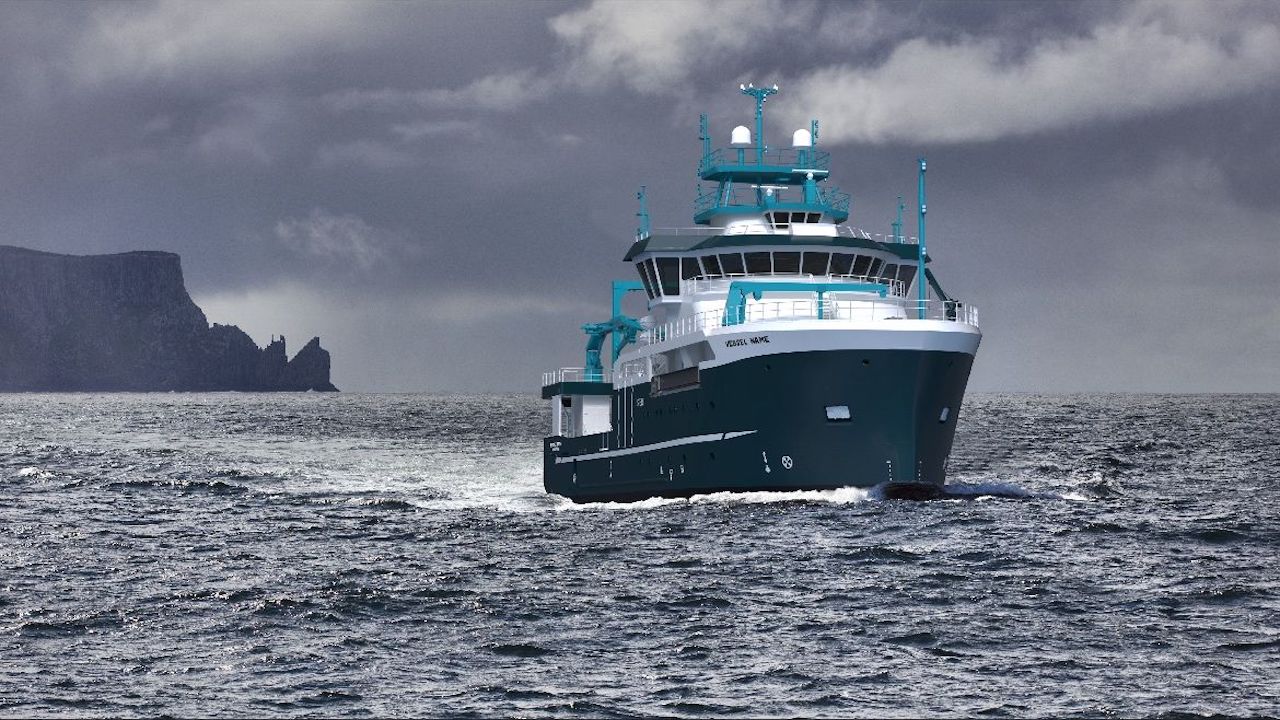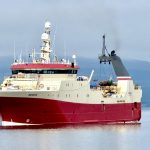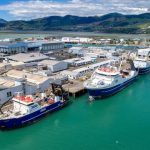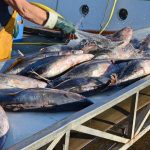A new Skipsteknisk-designed fisheries and oceangraphic research vessel for the Agri-Food & Biosciences Institute (AFBI) in Belfast will be built at the Astilleros Armón yard in Spain.
The new AFBI research vessel is designed to meet the strict underwater noise requirements defined in the ICES 209 report.

The 52.80-metre vessel is arranged for a crew of 12, together with 12 scientists. The low emissions propulsion system is a hybrid package that incorporates a large battery capacity. This will enable the vessel to operate for periods with zero emissions, as well as maintaining low emissions in the longer term.
This will be the first hybrid vessel within the regional research vessel fleet operating from the UK and Ireland, with sufficient battery capacity to allow some operational activities to be conducted on battery power alone. It will also be equipped to operate on biofuel, supporting the pathway to net zero.
The vessel is of a ST-366 design, developed to meet AFBI’s specific scientific operational requirements. AFBI has awarded the design contract to Skipsteknisk, and in a collaborative process the design has been further developed and tailored to meet operational as well as environmental requirements.
Replacing current 35-year-old research vessel Corystes, which operates from the Port of Belfast, this represents a significant capital investment by the Department of Agriculture, Environment and Rural Affairs (DAERA) to strengthen and support marine science in Northern Ireland for the next 30 years.

The new vessel will be able to spend 21 days at sea and be operational at sea for 300 days a year; therefore, allowing AFBI to continue and enhance its integrated marine science programme in Northern Ireland’s coastal waters, the Irish Sea and adjacent waters.
‘The new research vessel will form a critical part of the Institutes science infrastructure. It will greatly enhance AFBI’s marine environmental and fisheries research capabilities in support of government policy, researchers, our coastal communities and the public,’ said AFBI CEO Dr Stanley McDowell.
‘The work which will be undertaken on the new vessel is essential for the sustainable management of our marine ecosystems and natural resources, biodiversity, and future Climate Action Plans.’
Pieter-Jan Schön, AFBI Director of Environment and Marine Science, highlighted the project represents a momentous change since the research vessel-based science programme started in Northern Ireland in the late 1980s from a converted fishing trawler Lough Foyle to the first purpose built research vessel.
‘The coast of Northern Ireland, and seas around it, supports an exceptional diversity of marine wildlife and their habitats. The ocean also drives our weather and impacts us all, especially living on an island,’ he said.
‘When complete, our new multipurpose research vessel will incorporate the latest technologies providing a versatile platform from which a wide range of marine environmental and fisheries research can be undertaken including fisheries surveys, environmental change monitoring, seabed mapping and research on ocean processes. All of which is integral to improve our knowledge and helping scientists understand the impact of the ever-changing marine environment and rising sea levels. Crucially, the new vessel will allow for effective international collaboration and will take AFBI’s research into the future.’





